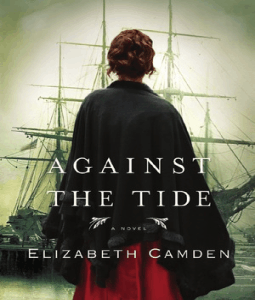I've been trying to write my own stuff more often lately, so I promised myself that I would start paring down on how many of these reviews I would participate in for a little while. But then I got the email notification that resulted in me reading this book and despite all my best intentions to write more, read a little less (just a little, mind you), I was hooked.
(Photo credits go to: http://imgv2-4.scribdassets.com/img/word_document/110453310/255x300/164f01de0c/1350587760)
After tragically losing her parents and younger brother, immigrant Lydia Pallas has grown up from that young girl who was completely unable to speak English, and she's finally found her place in the world. With a stunning talent for languages, she has acquired a job translating intelligence for the U.S. Navy. Her ordered world is slowly jumbled when the ever-intriguing and mysterious Alexander Banebridge sweeps into her life and hires her as a translator.
Waging his own war against the opium trade, Bane will do whatever it takes to take the trade down. His past and the sacrifices made in his life, has left him with an iron will that refuses to bend under the sweet attention he craves from Lydia. But his own refusal to get her involved is overruled when his enemies in the opium trade gain a cruel upperhand over Bane. And this time, he knows he can't afford to keep Lydia out of the conflict and the danger involved in his life.
Finding a cause bigger than herself gives Lydia purpose, and though she wants absolutely nothing to do with Bane, she can't refuse his request for aid - the stakes are too high and too unusual to refuse. The mission set before her, however, will test her courage, determination, and her wits to the very edge.
Sounds good, right? I thought so too; but in reality, it was so much better than what I imagined it would be.
I started reading this one afternoon, thinking to get a few chapters out of the way and then get to writing after that. But I literally could not put this book down! One long (and very pleasant) afternoon-turned-evening later, and I was staring spell-bound at the very last page, unwilling to close the book and have the story end for real.
Camden's characters are intriguing, at times frustrating, and real. That's one of the first things I look for in a new book, and while you have to do a bit of imagining and history-minding in order to account for certain instances of naivete and/or cultural oddities, she was real to her historic setting.
And the story line was incredible. Just when I thought I had everything figured out, Camden hit me with a twist, and the race to the finish line was on again (so to speak). Without spoiling any twists or the ending, I can definitely say that despite how well I can normally predict what's gonig to happen in a book, I was caught pleasantly unawares several times (which is hard to do, actually).
I would rate this (on a 1-10 low/high scale) at about 8. Camden has talent and a natural ability to tell a good story. With a strong (but believable!) feminine character, strong supporting characters, witty dialogue, an intriguing plot, and brilliant twists, I would definitely recommend this book to anyone who likes a bit of intrigue and (a little bit more than) a dash of romantic tension.
